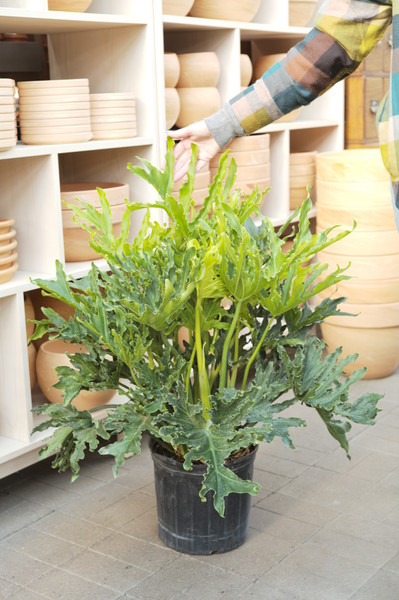Philodendron Lickety Split
Posted by Hannah Brand on Dec 20th 2024
Weekly Plant Chat: Philodendron Lickety Split
Hey Plant Friends!
This week we are talking about Thaumatophyllum bipinnatifidum, previously classified as Philodendron bipinnatifidum or Philodendron selloum. This stunner is commonly known as Philodendron Lickety Split and is beloved for its large, glossy, green leaves and deeply cut foliage.
Family of Origin
Philodendrons are aroids and are members of the Araceae plant family along with monstera, peace lily, and alocasia. Philodendron Lickety Split is native to the tropical regions of South America, namely Brazil, Bolivia, Argentina, and Paraguay.
Plant Care
Light
Philodendron thrive in bright, indirect light indoors. However, too much direct light can cause foliage to burn. If you plan to grow your plant outside for the summer, a nice shady spot will do.
Soil
Because Philodendron are aroids, they like a chunky, airy mix. We recommend using Sol Soils House Plant Chunky Mix. This mix includes perlite, pumice, coconut husks, pine bark, and more to achieve the perfect balance of aeration, drainage, and water holding capacity. You can also create your own custom Aroid mix by combining 1 part All Purpose Potting Mix, 1 part Orchid Bark, 1 part Perlite, 1/2 part Charcoal, and 1/2 part Worm Castings.
Water
Check weekly for watering and give a good soak when the first several inches to half of the soil level is dry to the touch. Never allow it to sit in standing water as this can lead to root rot. As always, make sure your pot has a drain hole!
Fertilizer
Fertilize in the spring and during active growth with an all-purpose fertilizer. We recommend Schultz All-Purpose Liquid Plant Food. Cut fertilizer routine in half in the fall and winter months.
Hot Tips
Keep an eye out for common pests such as mealy bugs and spider mites. Check for pests weekly while watering and keep a bottle of Bonide’s Insecticidal Soap on hand for easy treatment.
Philodendron Lickety Split is not pet safe and is toxic to our furry friends.
Shop Now!
Always approachable and happy to help!

